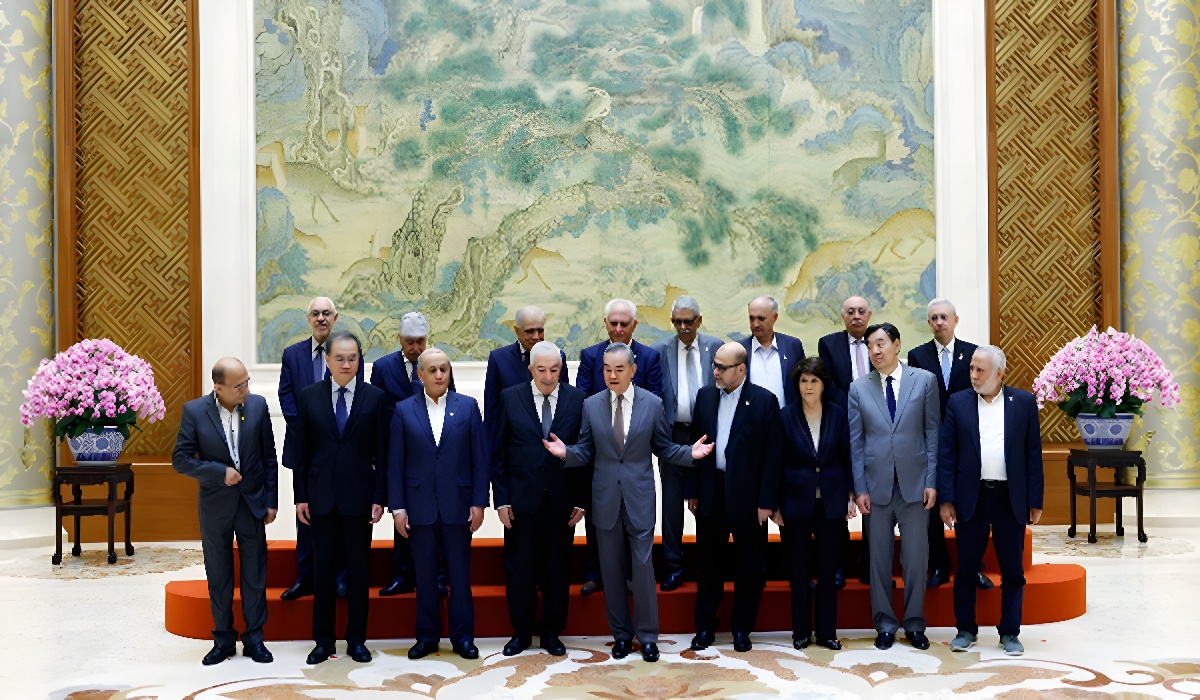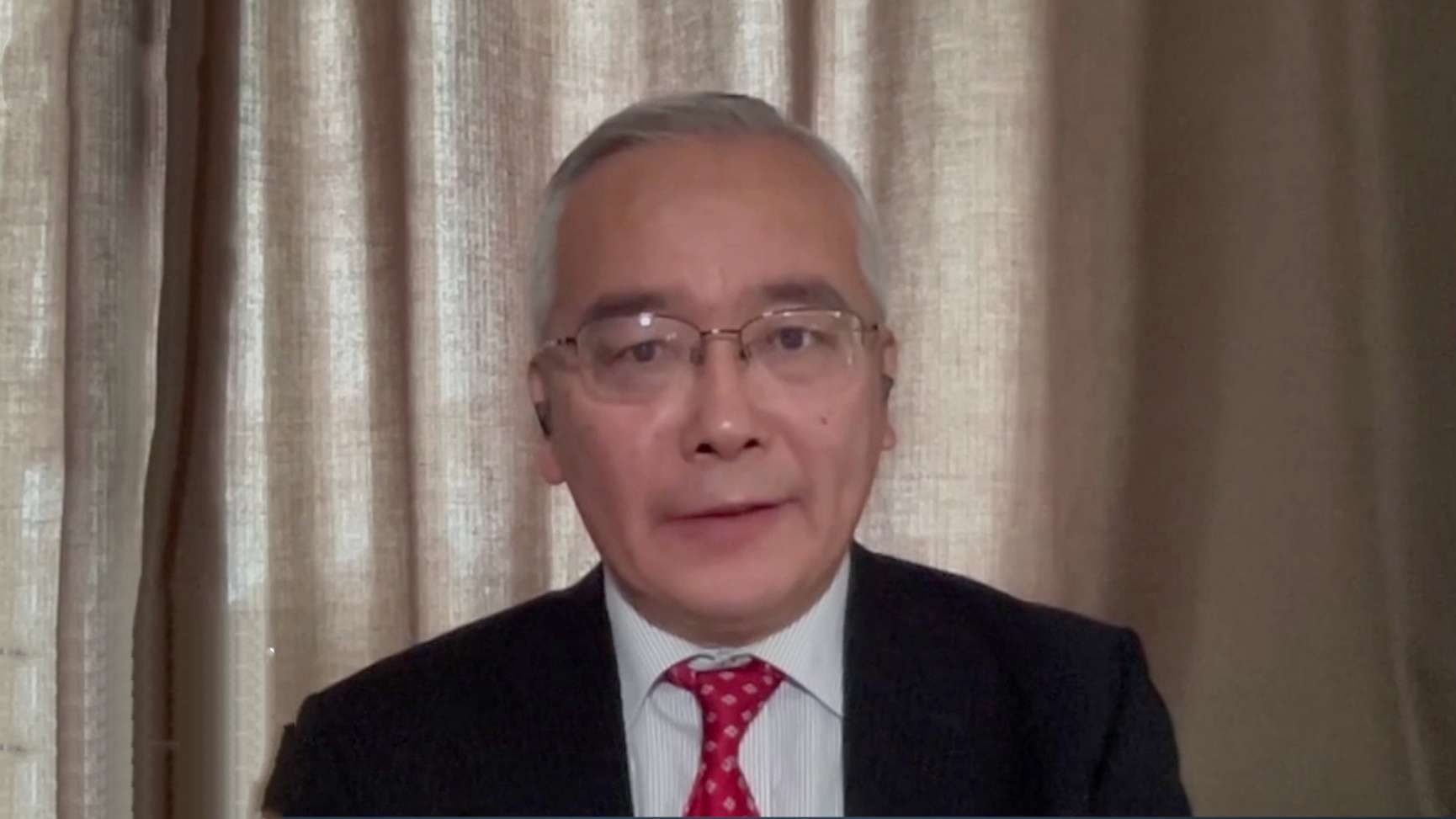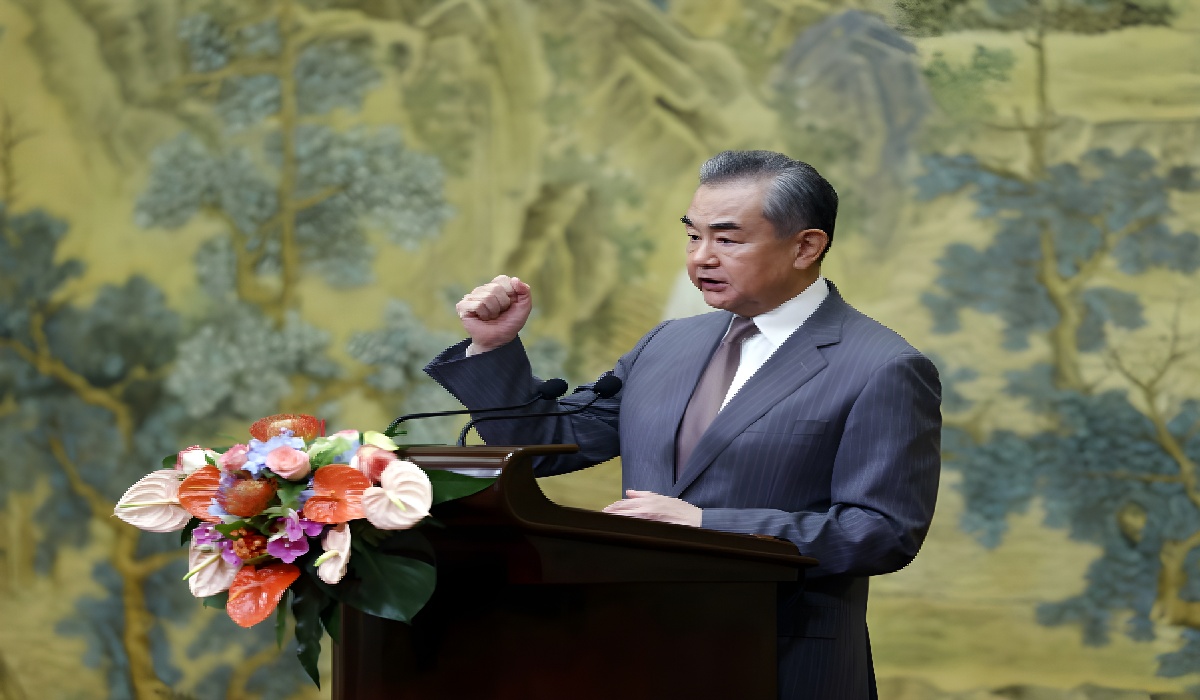Essential step’: Experts hail Palestinian factions’ Beijing declaration of unity
- Contributor
- China
- Middle East
- Trending
- July 24, 2024

By Chen Guifang
As the Palestinian death toll from the ongoing Israeli attacks on the Gaza Strip that broke out last October has risen to nearly 39,000, high-level representatives of 14 Palestinian factions held a three-day reconciliation dialogue in Beijing that concluded on Tuesday.
In a historic moment in the cause of Palestinian liberation, as descried by Chinese Foreign Minister Wang Yi, the Palestinian factions inked a declaration on ending divisions and strengthening unity.
In the Beijing Declaration, they agree to realize national unity among all factions within the framework of the Palestine Liberation Organization (PLO).
Experts that CGTN spoke to applauded the significance of the Declaration and called it another major diplomatic victory for China’s dedication to promoting peace in the Middle East following the detente between Saudi Arabia and Iran through Beijing’s mediation in March 2023.
Milestone in intra-Palestinian reconciliation
Speaking at the closing meeting of the reconciliation dialogue among Palestinian factions on Tuesday, Wang said the most important consensus reached at the dialogue is to achieve grand reconciliation and unity among the 14 factions.
The core outcome is to make clear that the PLO is the sole legitimate representative of all the Palestinian people, said Wang, also a member of the Political Bureau of the Communist Party of China (CPC) Central Committee.
The most significant highlight is the agreement to form an interim national reconciliation government focusing on the post-war governance of Gaza, and the strongest call is for the creation of a truly independent Palestinian state in accordance with relevant United Nations (UN) resolutions, Wang said.
The Chinese foreign minister extended his congratulations on the success of the Beijing dialogue and the signing of the Beijing Declaration.
Speaking to CGTN’s Global Watch, Rong Ying, a senior research fellow at the China Institute of International Studies, said that the signing of the Beijing Declaration is a milestone for Palestine’s internal reconciliation.
This is the first time since the start of the Palestine-Israel conflict on October 7, 2023, that Palestinian factions have reached a reconciliation agreement, Rong noted.

The reconciliation is an essential step for Palestine to speak with one voice in the international community, said Yu Guoqing, professor at the Chinese Academy of Social Sciences and executive director of the Chinese Association of Middle East Studies.
It is also a major step towards ending the current conflict in Gaza, realizing a ceasefire and making post-war arrangements, Yu told CGTN.
Moreover, it marks an indispensable step towards the realization of a Palestinian state on the basis of the two-state solution, he stressed.
In a third-step approach unveiled on Tuesday, China also proposed to promote Palestine to become a full member of the UN.
Palestine has been a non-member observer state at the UN since November 2012. By June 2024, it had been recognized as a sovereign state by nearly 150 countries, with China among the first to do so.

Wang Yi addresses the closing meeting of the reconciliation dialogue among Palestinian factions in Beijing, China, July 23, 2024. /Chinese Foreign Ministry
China’s peace efforts
The latest round of talks came after Fatah, the Palestinian National Liberation Movement and the largest faction of the multi-party PLO, and Hamas, the Islamic Resistance Movement that runs Gaza, held talks on promoting intra-Palestinian reconciliation in Beijing at the end of April.
It also marked the first time that the 14 Palestinian factions gathered in Beijing for a reconciliation dialogue. At Tuesday’s closing meeting, Mahmoud al-Aloul, Fatah’s deputy chief and head of its delegation, and Moussa Abu Marzouk, who leads the Hamas delegation, gave speeches.
It is not easy logistically for representatives of all 14 factions to meet in Beijing since they reside in different places, some in the West Bank and others overseas, according to Yu.
“At present, I believe only China is able to bring together these factions, whose stances vary,” he said.
Yet it is only natural for China to make the get-together happen because Beijing has long been sincerely pushing for peace among different Palestinian factions, with an eye on the resolution of the Palestine issue, Yu added.
In the Beijing Declaration, the factions also expressed their appreciation for China’s sincere efforts to support the rights of the Palestinian people, end Palestine’s division and accommodate different stances.
“That speaks volumes for China’s image,” said Yu. “China seeks no interests for itself when it comes to Middle East issues.”
It shows the world once again that China, as a permanent member of the UN Security Council and a responsible major country, is practicing the concept of building a community with a shared future for mankind and the Global Security Initiative in the Middle East with real actions, he said.
China is contributing to the lasting security and peace in the Middle East and to the region’s development in the future, said Yu.








